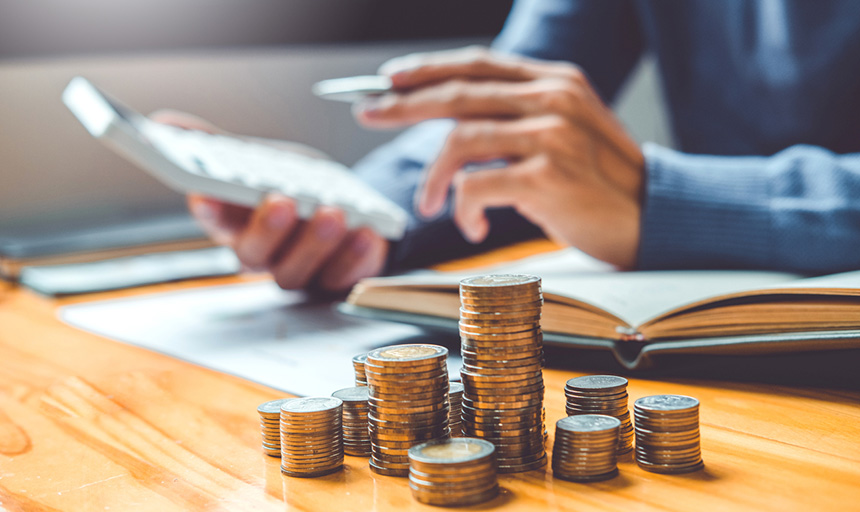Virginia Consumer Sentiment and Inflation Expectations Report for Feb. 2023
February 28, 2023

Consumer sentiment increases, buoyed by slowing inflation and robust labor markets
The Virginia Index of Consumer Sentiment (VAICS) increased by 1.4 points at the start of 2023, its highest value in one year. Virginians are increasingly optimistic as inflation continues to slow. The national inflation rate was 6.4% in January, pushing up the Index of Current Conditions by 4.5 points. The strong labor market also contributes to the improved sentiment. The national unemployment rate hit the lowest rate since 1969 in January 2023.
Consumer sentiment increased by 4.5 points in the first quarter of 2023 to 67.5, the highest value since February 2022, and continues the rebound since the historic low of 58.2 in May 2022. The primary driver behind the recovery in sentiment is slowing inflation. Inflation, as measured by the Consumer Price Index and capturing the price of goods and services bought by the typical household, hit the highest level in over 40 years in June 2022 (9%). Since then, inflation has rolled over, coming in at 6.4% in January 2023. Virginians are more optimistic about the economy when pressure on their wallets lessens.
In terms of sentiment, the slowing of price growth reinforces the strong labor market, and its headwind is easing. Nationally, the January unemployment rate was 3.4%, slightly below the pre-pandemic value of 3.5% and the lowest value since May 1969; the rate in Virginia is 3.0%. The tight labor market, along with an increased minimum wage and social security payments, bolstered spending and household income.
The Virginia Index of Current Conditions (ICC) is 60.2, up 4.5 points since the last quarter, although still well off its pre-pandemic February 2020 value of 103.5. Less than a quarter of respondents report that their finances are better today than a year ago despite increased home values and incomes. Virginians see their wages buying considerably less today than a year ago, which is holding the ICC back. Thirty-six percent of respondents believe that now is a good time to buy large, durable goods like refrigerators, reflecting their falling prices. Prices of durable goods fell by an average of 0.6% in each of the last three months and 1.3% over the last year. Virginians are less optimistic about current conditions than the nation.
Although sentiment is low in the commonwealth, there is relative optimism about the future. The Virginia Index of Consumer Expectations (VA ICE) is 72.2, down a modest 0.6 points since last quarter and almost 7.5 points above the national number. About 38% of respondents believe the coming five to 10 years will be a period of economic growth and prosperity, and 33% anticipate improved household finances in the coming year. The optimism is likely linked to falling price expectations. Almost 63% of Virginians anticipate lower price growth over both the near term (the coming year) and the long term (the next five to 10 years.) The short-run inflation expectation is 3.2%, while the long-run value is 3.1%.

The Virginia Consumer Sentiment Report is conducted by the Institute for Policy and Opinion Research at Roanoke College as a public service.
Analysis
"Consumer sentiment continues to steadily improve," said Alice Louise Kassens, John S. Shannon Professor of Economics and Senior Analyst at the Roanoke College Institute for Policy and Opinion Research. "Consumer sentiment reflects how consumers feel about the economy, and it can also impact the future. If people are worried about the economy's future, it can become a self-fulfilling prophecy, and we can push ourselves into a recession. The labor market remains strong and is a tailwind for the economy. Although inflation continues as the largest drag on sentiment, it appears to have rolled over and is moving in the right direction, albeit slowly. Markets continue to sort out the pandemic supply chain issues that impacted the global economy and are a primary driver of the current inflation woes. If the improvement continues without any other shock, prices should continue to trend downward. Consumer spending remains strong, which is contributing to inflation but keeping the economy out of recession."
Methodology
Interviewing for The Roanoke College Poll was conducted by The Institute for Policy and Opinion Research at Roanoke College in Salem, Virginia, between Feb. 12 and Feb. 21, 2023. A total of 708 completed interviews came from random telephone calls to 443 Virginians, and 265 responses were drawn from a proprietary online panel of Virginians. Telephone interviews were conducted in English. Cell phones constituted 54% of the completed phone interviews. Marketing Systems Group provided the telephone dialing frame, and Lucid, LLC facilitated the online panel.
Questions answered by the sample of 708 respondents are subject to a sampling error of plus or minus approximately 4.0% at the 95% confidence level. This means that in 95 out of 100 samples like the one used here, the results should be at most 4.0 percentage points above or below the figure obtained by interviewing all Virginians with a home telephone or a cell phone. Where the results of subgroups are reported, the sampling error is higher.
Quotas were used to ensure that different regions of the commonwealth were proportionately represented. The data were statistically weighted for gender, race and age. Weighting was done to match Virginia data in the 2021 one-year American Community Survey (ACS). The margin of error was not adjusted for design effects due to weighting.
A copy of the questions and all toplines may be found here.
More information about the Roanoke College Poll may be obtained by contacting Alice Kassens at kassens@roanoke.edu or 540-375-2428 or the Roanoke College Public Relations Office at 540-375-2282 or rcnews@roanoke.edu. For more about the Institute for Public Opinion Research, click roanoke.edu/IPOR.
Contact Name: Dr. Alice Louise Kassens, Senior Analyst, IPOR
Contact Phone: 540-375-2428
Contact Email: kassens@roanoke.edu